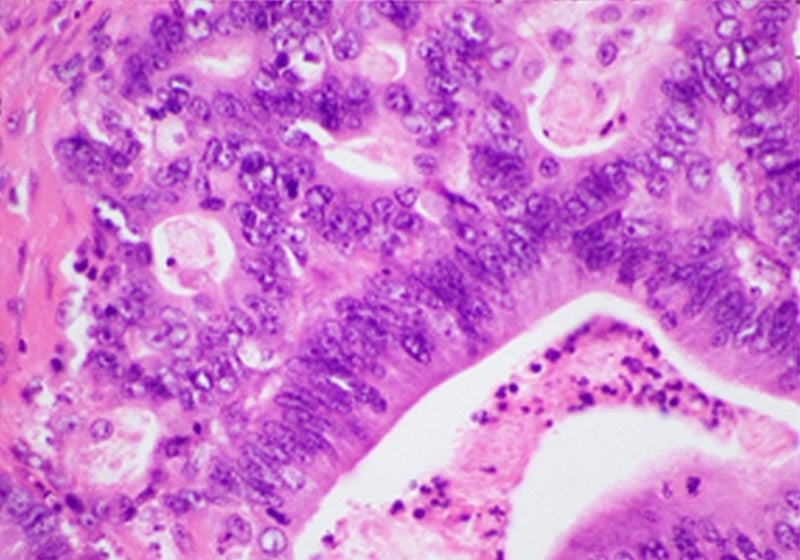
Ipsen has announced positive data from the Phase III NAPOLI 3 trial of an investigational regimen of Onivyde (irinotecan liposome injection) in patients with metastatic pancreatic ductal adenocarcinoma (mPDAC), who were not treated earlier.
The pivotal, open-label, randomised, Phase III trial of the Onivyde treatment regimen (NALIRIFOX) has been conducted in 770 patients who did not receive chemotherapy for metastatic pancreatic ductal adenocarcinoma.

Discover B2B Marketing That Performs
Combine business intelligence and editorial excellence to reach engaged professionals across 36 leading media platforms.
The NAPOLI 3 trial enrolled the subjects across 205 site locations in 18 countries and randomised them to receive Onivyde plus 5 fluorouracil/leucovorin and oxaliplatin (NALIRIFOX regimen; n=383) two times in a month, compared to an injection of nab-paclitaxel and gemcitabine give three times a month.
Ipsen Research and Development executive vice-president and head Howard Mayer said: “Very few clinical studies in metastatic pancreatic ductal adenocarcinoma have demonstrated efficacy in the past few decades.
“Progress has been slow with limited treatment options, hence the NAPOLI 3 results are a meaningful advance for people with previously untreated metastatic pancreatic ductal adenocarcinoma.
“In totality, the data demonstrate that the investigational Onivyde treatment regimen (NALIRIFOX) provides a survival benefit over nab-paclitaxel plus gemcitabine. We look forward to submitting the data to the FDA.”

US Tariffs are shifting - will you react or anticipate?
Don’t let policy changes catch you off guard. Stay proactive with real-time data and expert analysis.
By GlobalDataSecondary outcome measures of the trial, which met its secondary endpoint, included objective response rate (ORR), PFS, incidence of treatment-emergent adverse events, serious adverse events, and laboratory abnormalities.
In the trial, patients treated with NALIRIFOX reported a statistically significant improvement in median PFS of 7.4 months, versus 5.6 months for nab-paclitaxel and gemcitabine.
For patients treated with the NALIRIFOX regimen, ORR was 41.8%, versus 36.2% for patients who received nab-paclitaxel and gemcitabine.
The safety profile of NALIRIFOX was found to be manageable and consistent with the treatment component profiles.
Diarrhoea, nausea, hypokalemia, anaemia, and neutropenia were the most common grade 3/4 treatment-emergent adverse events, with a frequency of more than 10% in patients receiving NALIRIFOX versus nab-paclitaxel and gemcitabine.





